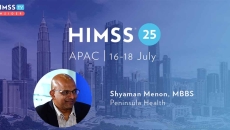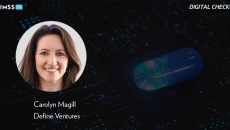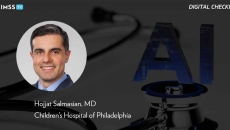Videos
Dr. Deepti Pandita, CMIO & VP of Clinical Informatics at University of California Irvine Health, says AI is a "shiny object" right now, but finding success depends on getting the scut work of data management right.
HIMSS25 APAC
Australian health providers also face the challenge of developing infrastructure that supports digital technologies, notes Dr Shyaman Menon, Peninsula Health executive director of Medical Services.
A new survey from Define Ventures outlines how 15 of the top 20 pharmaceutical companies are embracing artificial intelligence, and where they're implementing it. Carolyn Magill, venture partner at the VC firm, unpacks the results.
HIMSS25 APAC
Institut Jantung Negara is incorporating AI to further prove its EMR and analytics capabilities, shares clinical director of Informatics, Dr Alwi Mohamed Yunus.
Healthcare artificial intelligence strategy at hospitals and health systems is a big challenge as the AI market and tech explode around providers. Dr. Hojjat Salmasian, CDAO and leader of AI at Children's Hospital of Philadelphia, has answers.
HIMSS25 APAC
Dr Wui-Chiang Lee, vice superintendent of Taipei Veterans General Hospital, shares four essential requirements in fostering digital hospital innovation.
"Nurses want help from AI but they don't want it to do their job," says Kenrick Cato, nurse scientist, pediatric data and analytics, Children's Hospital of Philadelphia—who also discusses the need to not repeat the mistakes of EHRs when deploying.
HIMSS25 APAC
One of the biggest hurdles in digital health adoption in the Philippines is the lack of interconnectivity, says Franklin Vibar, CIO of Metro Pacific's Asian Hospital and Medical Center.
Megan Zakrewsky, Veradigm's VP of product for clinical data exchange, says that in automating payer data exchange and reducing clinician desktop crowding, the EHR is also eliminating patient care gaps by up to 80%, based on larger provider groups.
Elizabeth Murumalla, IS project manager at WakeMed Health & Hospitals, describes how it is deploying generative AI and predictive modeling, and how its collaboration with Epic is helping manage some challenges along the way.









